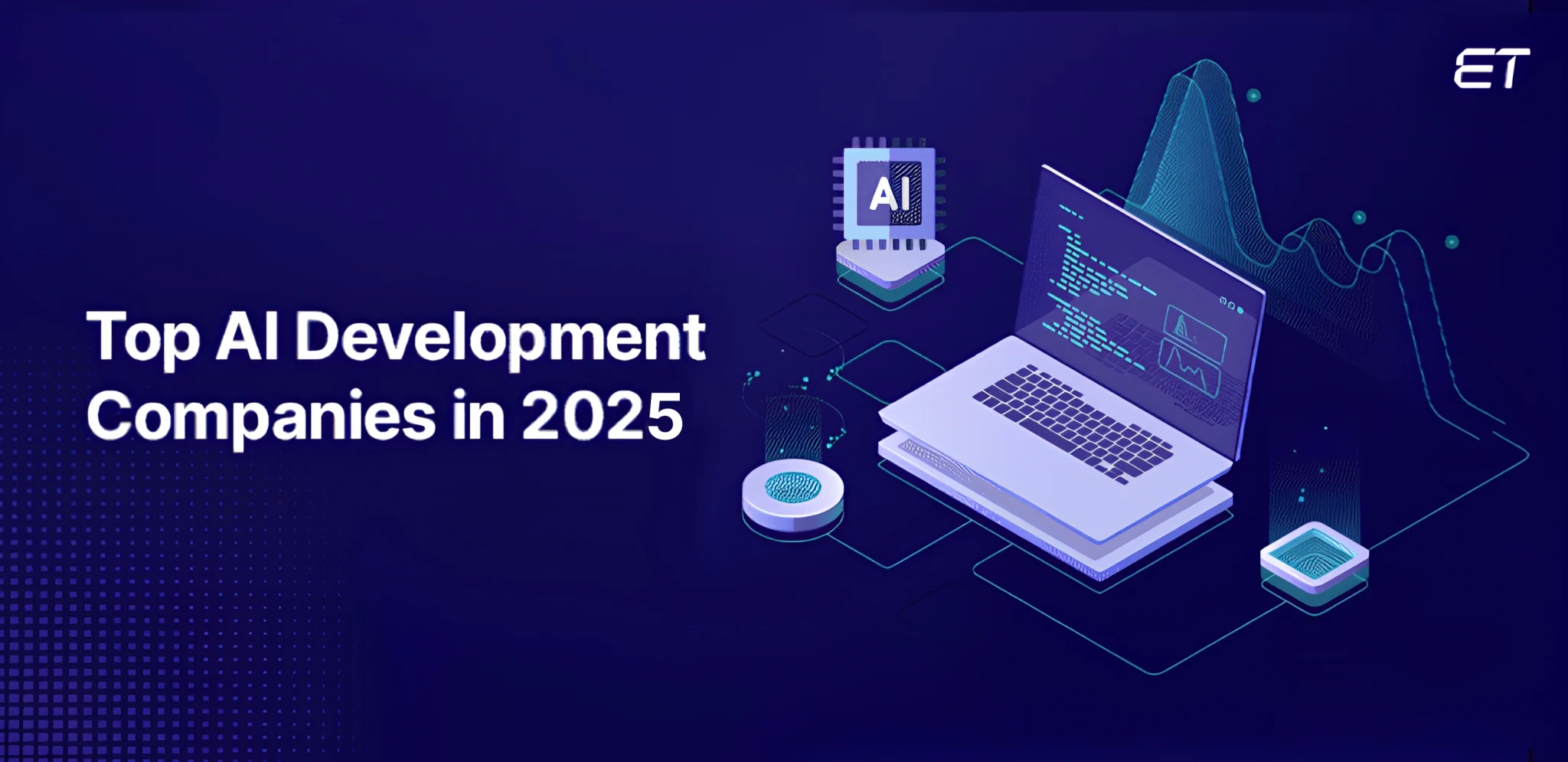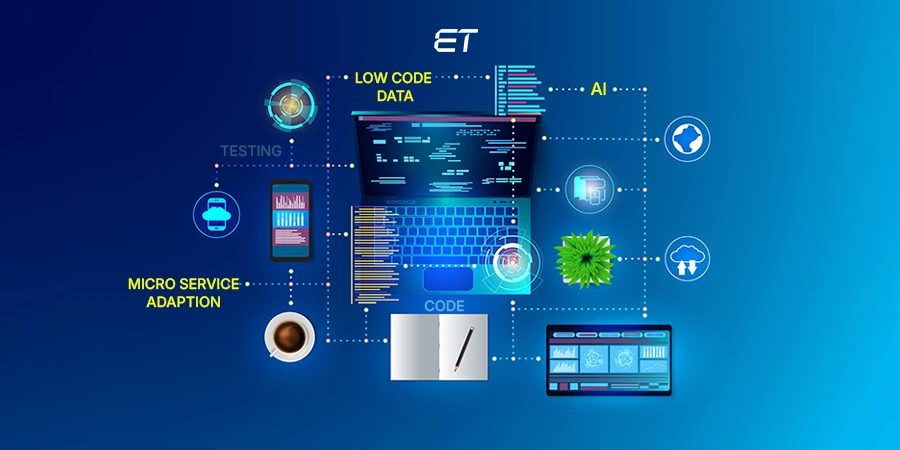
The 10 Best AI Development Companies (Not Just Big Names)
Finding the right AI development partner can transform your business operations. Companies need partners who understand both technology and business needs. This guide examines the best AI development companies in 2025 based on their track record, technical capabilities, and client success rates.
The AI software development market has grown rapidly. Companies now offer services ranging from machine learning models to complete automation systems. Each firm brings different strengths to the table. Some excel at healthcare applications. Others focus on financial services or retail solutions.
What Makes an AI Development Company Stand Out
Top AI development companies share several key traits. They invest heavily in research and development. They maintain teams of experienced data scientists and engineers. They deliver measurable results for their clients.
Technical expertise forms the foundation. The best firms work with multiple AI frameworks and programming languages. They understand machine learning, natural language processing, and computer vision. They also know how to integrate these technologies into existing business systems.
Industry experience matters significantly. Companies that understand specific sectors deliver better solutions. A firm with healthcare experience knows HIPAA compliance requirements. One focused on finance understands risk modeling and regulatory needs.

Client success metrics prove a company’s value. Look for firms that provide case studies with concrete results. These might include efficiency improvements, cost reductions, or revenue increases.
Real numbers matter more than marketing promises.
10 Best AI Development Companies
These companies represent the current leaders in AI development. Each brings unique capabilities and proven success to their clients. We evaluated their technical expertise, project track records, communication practices, security measures, and ability to deliver complete AI solutions.
1. eLuminous Technologies

eLuminous Technologies leads the pack with comprehensive AI solutions for enterprise clients. The company maintains a team of 100+ AI specialists working across machine learning, deep learning, and neural networks. They use TensorFlow, PyTorch, scikit-learn, and AWS SageMaker for model development. Their technical stack includes Python, R, Java, and cloud platforms from AWS, Azure, and Google Cloud.
Past projects demonstrate their range. They developed a predictive maintenance system for a manufacturing client that reduced downtime by 40%. For a healthcare provider, they built an image recognition system for medical diagnostics achieving 94% accuracy. Their retail analytics platform processes millions of transactions daily for inventory optimization.
Core Competencies:
- Custom machine learning models with deployment-ready APIs
- Real-time data processing systems handling 100,000+ requests per second
- Computer vision solutions for quality control and medical imaging
- Natural language processing for customer service automation
(make sure you use real bullet points for lists in the text, one bullet per line – <ul><li> tags)
Communication remains a priority with dedicated project managers providing daily updates. They maintain 24-hour response times for critical issues and weekly progress reports. Security practices include ISO 27001 certification, end-to-end encryption, and GDPR compliance. They conduct regular security audits and penetration testing.
Delivery Strengths:
- Complete products with user interfaces, not just raw models
- Comprehensive documentation and training materials
- Post-deployment support with SLA guarantees
- Scalable architecture supporting millions of users
2. Artjoker

Artjoker delivers client-focused AI solutions with expertise in machine learning models and automation tools. Their technical team specializes in Python, TensorFlow, and Keras for deep learning applications. They work extensively with PostgreSQL, MongoDB, and Redis for data management. Cloud deployments utilize AWS and Google Cloud Platform.
Notable projects include an e-commerce recommendation engine that increased sales by 35% for a major retailer. They built a healthcare appointment scheduling system using NLP that handles 50,000+ bookings monthly. Their fraud detection system for a financial services firm processes transactions in real-time with 98% accuracy.
Technical Capabilities:
- Advanced automation tools reducing manual processes by 60-80%
- Data analytics dashboards with real-time visualization
- Machine learning models optimized for edge deployment
- API-first architecture for seamless integration
The company maintains agile communication with bi-weekly sprint reviews and dedicated Slack channels. Response times average 4 hours during business hours. They implement multi-factor authentication, role-based access control, and regular backup procedures. All data transmissions use TLS 1.3 encryption.
Product Delivery:
- Full-stack applications with React or Angular frontends
- Mobile apps for iOS and Android platforms
- Containerized deployments using Docker and Kubernetes
- Continuous integration/deployment pipelines
3. Quantiphi

Quantiphi provides data-enhanced AI solutions to global businesses with deep expertise in machine learning and deep learning. Their engineers work with TensorFlow, PyTorch, MXNet, and Caffe frameworks. They leverage Google Cloud AI Platform, AWS ML services, and Azure Machine Learning for enterprise deployments.
Successful implementations include a supply chain optimization platform for a Fortune 500 company saving $15 million annually. They developed a medical imaging analysis system processing 100,000+ scans monthly. Their customer churn prediction model for a telecom provider achieved 89% accuracy.
Core Technologies:
- Deep learning models for image and video analysis
- Reinforcement learning for optimization problems
- Graph neural networks for recommendation systems
- Transformer models for NLP applications
Project teams provide daily standup meetings and weekly executive summaries. They maintain a 6-hour SLA for production issues. Security measures include SOC 2 Type II compliance, data anonymization techniques, and federated learning approaches for sensitive data. Regular third-party security assessments ensure robust protection.
Solution Delivery:
- End-to-end platforms with monitoring and alerting
- Custom dashboards using Tableau or Power BI
- Automated model retraining pipelines
- Performance optimization for sub-second response times
4. Beyond Limits

Beyond Limits applies space technology-inspired approaches to business AI challenges. Their Cognitive AI platform combines symbolic AI with numeric AI techniques. Technical expertise spans C++, Python, and Julia for high-performance computing. They utilize proprietary cognitive reasoning engines alongside standard ML frameworks.
Key projects include predictive maintenance for oil refineries preventing $20 million in potential losses. They developed an energy grid optimization system reducing power consumption by 25%. Their industrial IoT platform processes sensor data from 10,000+ devices in real-time.
Specialized Capabilities:
- Hybrid AI combining symbolic reasoning with machine learning
- Explainable AI with human-readable decision paths
- Edge computing solutions for industrial environments
- Digital twin technology for asset optimization
Communication follows aerospace industry standards with detailed documentation and traceability. Weekly progress reviews include technical deep-dives. Security practices meet critical infrastructure requirements including air-gapped environments and hardware security modules. They maintain NIST cybersecurity framework compliance.
Industrial Solutions:
- SCADA system integration with legacy equipment
- Real-time monitoring dashboards with alerting
- Predictive analytics with confidence intervals
- Simulation environments for scenario testing
5. Modzy

Modzy focuses on enterprise AI deployment and governance with their ModelOps platform. Technical capabilities include support for TensorFlow, PyTorch, ONNX, and scikit-learn models. They provide RESTful APIs, gRPC interfaces, and SDK support for Python, Java, and Node.js.
Deployment successes include a government agency processing 1 million documents daily for intelligence analysis. They enabled a healthcare network to deploy 50+ AI models across 20 hospitals. Their financial services platform manages model versioning for 200+ risk assessment algorithms.
Platform Features:
- Model marketplace with 100+ pre-trained models
- Automated model versioning and rollback capabilities
- A/B testing framework for model comparison
- Hardware acceleration using GPUs and TPUs
Client communication happens through a dedicated portal with real-time metrics and usage statistics. Support team response times average 2 hours for critical issues. Security features include model encryption, audit logging, and compliance with FedRAMP standards. They provide role-based access control and API key management.
Deployment Excellence:
- One-click deployment to cloud or on-premises infrastructure
- Automatic scaling based on demand
- Model performance monitoring with drift detection
- Integration with CI/CD pipelines
6. Abzooba

Abzooba combines AI and big data expertise using Apache Spark, Hadoop, and Kafka for data processing. Their AI stack includes TensorFlow, H2O.ai, and DataRobot for automated machine learning. They work with both structured and unstructured data using SQL and NoSQL databases.
Client achievements include a customer behavior analytics platform processing 500 million events daily. They built an insurance claim processing system reducing review time by 70%. Their retail inventory optimization solution manages 100,000+ SKUs across 500 locations.
Data Engineering Strengths:
- Real-time stream processing handling 1 million events per second
- Data lake architecture supporting petabyte-scale storage
- ETL pipelines with 99.9% uptime
- Master data management across multiple systems
Project updates occur through JIRA dashboards and weekly video conferences. Emergency support provides 1-hour response times. Security implementations include data masking, tokenization, and compliance with PCI DSS for payment data. They maintain separate development, staging, and production environments.
Analytics Solutions:
- Self-service analytics portals for business users
- Automated reporting with scheduled delivery
- Predictive models integrated with business workflows
- Mobile-responsive dashboards and alerts
7. AIBrain

AIBrain specializes in cognitive AI with proprietary Memory Graph technology. Their technical stack includes C++, Python, and Lisp for AI reasoning systems. They develop using ROS (Robot Operating System) for robotics applications and Unity for simulation environments.
Significant projects include an intelligent tutoring system serving 50,000 students with personalized learning paths. They created a conversational AI platform handling customer service for a bank with 85% first-call resolution. Their autonomous robot navigation system operates in warehouse environments.
Cognitive Technologies:
- Problem-solving engines using symbolic reasoning
- Episodic memory systems for context retention
- Multi-agent systems for complex simulations
- Natural language understanding with semantic parsing
Communication follows research project standards with monthly technical reports and quarterly reviews. Support response times vary from 4-8 hours based on priority. Security measures include sandboxed execution environments and privacy-preserving machine learning techniques. They implement differential privacy for sensitive applications.
Application Development:
- Conversational interfaces with context awareness
- Educational applications with adaptive learning
- Robotics control systems with safety guarantees
- Game AI with human-like behavior
8. Algoworks

Algoworks provides complete AI development with expertise in TensorFlow Lite for mobile deployment. They use Apache MXNet for distributed training and OpenCV for computer vision tasks.
Database technologies include PostgreSQL, Cassandra, and Elasticsearch.
Delivered solutions include a facial recognition system for retail stores with 99.2% accuracy. They built a predictive maintenance platform for manufacturing reducing costs by 30%. Their chatbot platform handles 10,000+ concurrent conversations for customer support.
Development Capabilities:
- Cross-platform mobile AI apps for iOS and Android
- Progressive web apps with offline AI capabilities
- Microservices architecture using Spring Boot
- GraphQL APIs for flexible data queries
Agile methodologies ensure bi-weekly releases with sprint retrospectives. Support teams maintain 4-hour response SLAs during business hours. Security protocols include OWASP compliance, vulnerability scanning, and secure coding practices. They perform quarterly security training for all developers.
Integration Services:
- Salesforce AI integration for CRM enhancement
- SAP integration for enterprise resource planning
- Microsoft Teams apps with AI features
- Shopify plugins for e-commerce automation
9. Netguru

Netguru combines AI expertise with modern development practices using React, Vue.js, and Ruby on Rails. Their ML stack includes scikit-learn, XGBoost, and LightGBM for structured data problems. They deploy using Docker, Kubernetes, and serverless architectures.
Success stories include a fintech platform processing loan applications 10x faster using AI. They developed a content moderation system reviewing 1 million posts daily. Their dynamic pricing engine for an e-commerce platform increased revenue by 22%.
Modern Tech Stack:
- JAMstack architecture for performance optimization
- Serverless functions for scalable AI endpoints
- WebAssembly for browser-based AI execution
- Edge computing with Cloudflare Workers
Daily standups and weekly demos keep clients informed. They use Slack for instant communication with 1-hour response guarantees. Security practices include automated security testing, dependency scanning, and compliance with ISO 27001. They maintain bug bounty programs for vulnerability discovery.
Product Design Integration:
- Design systems with AI-powered components
- User research incorporating AI insights
- A/B testing platforms with statistical significance
- Accessibility features using AI assistance
10. Turing

Turing excels at enterprise AI with expertise in distributed computing using Apache Spark and Dask. They specialize in AutoML platforms including H2O.ai and Google AutoML. Programming languages include Python, Scala, and Go for high-performance systems.
Major implementations include a supply chain optimization system saving $8 million annually for a logistics company. They built a customer lifetime value prediction model improving marketing ROI by 45%. Their document processing system extracts data from 100,000+ documents daily.
Enterprise Technologies:
- Distributed training across multiple GPUs
- Feature stores for consistent model inputs
- Model registries with governance workflows
- Automated hyperparameter tuning
Project management uses enterprise tools like ServiceNow and Microsoft Project. They provide 24/7 support for production systems with 15-minute response times for critical issues. Security compliance includes SOC 2, HIPAA, and PCI DSS certifications. They implement zero-trust architecture and encrypted data lakes.
Business Intelligence Integration:
- Power BI dashboards with embedded AI insights
- Tableau extensions for predictive analytics
- Oracle Analytics Cloud integration
- Custom reporting APIs for enterprise systems
Best AI Enterprise Software Development Companies: Key Services
Enterprise AI companies offer specialized services that larger organizations need. These services go beyond basic automation to address complex business challenges.
Machine learning model development forms the core offering. Companies create custom algorithms that learn from your data. These models predict customer behavior, detect fraud, or optimize supply chains. The best firms train models on your specific data for accurate results.
Natural language processing enables businesses to understand text and speech. This technology powers chatbots, document analysis, and sentiment analysis tools. Companies use NLP to automate customer service and extract insights from unstructured data.
Computer vision solutions analyze images and video data. Retail companies use this for inventory management. Manufacturing firms apply it for quality control. Healthcare organizations employ it for medical imaging analysis.
Predictive analytics helps businesses forecast future trends. AI models analyze historical data to predict sales, equipment failures, or market changes. This capability supports better planning and resource allocation.
Process automation reduces manual work across organizations. AI handles repetitive tasks like data entry, report generation, and basic decision-making. This frees employees to focus on strategic activities.
Selecting the Best AI Development Companies Out There
Choosing an AI partner requires careful evaluation. Consider these factors when reviewing potential companies.
Technical capabilities should match your project needs. Review the company’s experience with relevant AI technologies. Check their proficiency in programming languages like Python, R, and Java. Verify their knowledge of frameworks such as TensorFlow, PyTorch, and scikit-learn.
Industry expertise accelerates project success. Companies familiar with your sector understand regulatory requirements and business processes. They anticipate challenges and apply proven solutions. Ask for case studies from similar organizations.
Data security and compliance protect your business. Best firms maintain ISO certifications and follow industry standards. They implement encryption, access controls, and audit trails. For regulated industries, verify their understanding of HIPAA, GDPR, or financial regulations.
Integration capabilities ensure smooth deployment. The best companies work with existing infrastructure. They understand APIs, databases, and enterprise software systems. Their solutions fit into your technology stack without major disruptions.
Support and maintenance keep systems running effectively. Look for companies that offer ongoing monitoring and updates. They should provide training for your team. Response times and service level agreements matter for critical systems.
Best AI Consulting Companies for RAG Development
Retrieval-Augmented Generation represents a significant advance in AI capabilities. RAG combines language models with information retrieval systems. This technology enables more accurate and contextual AI responses.
RAG development requires specialized expertise. Companies need to understand both large language models and database systems. They must know how to index documents effectively. They also need skills in prompt engineering and model fine-tuning.
Leading RAG consultants help businesses implement knowledge bases. These systems answer questions using company documents and data. Applications include customer support, internal knowledge management, and research assistance.
Implementation involves several technical steps. Consultants help select appropriate language models. They design document processing pipelines. They create vector databases for efficient retrieval. They also optimize the system for accuracy and speed.
Cost considerations vary based on project scope. Basic RAG systems might cost tens of thousands of dollars. Enterprise implementations can reach hundreds of thousands. Factors include data volume, integration complexity, and performance requirements.
Investment and ROI Considerations
AI development projects require significant investment. Understanding costs and potential returns helps justify these expenses.
Project costs depend on multiple factors. Complexity drives the biggest variations. Simple automation might cost $25,000 to $50,000. Custom machine learning models range from $50,000 to $250,000. Enterprise-wide AI transformations can exceed $1 million.
Development timelines affect both cost and value delivery. Basic projects take 2-3 months. Complex implementations require 6-12 months or more. Phased approaches allow earlier value realization while managing risk.
Return on investment comes through various channels. Automation reduces labor costs. Predictive maintenance prevents expensive failures. Better customer insights increase sales conversion.
AI-powered decision-making improves resource allocation.
Measurement frameworks track project success. Define clear metrics before starting development. Monitor efficiency gains, error reductions, and revenue impacts. Regular assessment ensures projects deliver expected value.
Future Trends in AI Development Services
The AI development landscape continues evolving rapidly. Understanding trends helps businesses plan long-term strategies.
Generative AI transforms content creation and design processes. Companies use these tools for marketing materials, code generation, and product design. The technology improves rapidly, expanding possible applications.
Edge AI brings intelligence to devices and sensors. This reduces latency and improves privacy. Manufacturing, healthcare, and retail sectors adopt edge AI for real-time processing.
Explainable AI addresses transparency concerns. Businesses need to understand how AI makes decisions. This becomes critical for regulated industries and high-stakes applications.
AutoML democratizes AI development. These tools automate model selection and optimization. Smaller companies can build AI solutions without extensive expertise.
Multimodal AI combines text, image, and audio processing. This enables more sophisticated applications. Virtual assistants and analytical tools benefit from multimodal capabilities.
Making Your Decision
Selecting among the best AI development companies requires systematic evaluation. Start by defining clear project objectives. Document your technical requirements, budget constraints, and timeline expectations.
Request detailed proposals from multiple companies. Compare their approaches, timelines, and pricing structures. Ask for references and speak with previous clients. Evaluate their communication style and project management processes.
Consider starting with a pilot project. This reduces risk while testing the partnership. Successful pilots can expand into larger engagements. This approach validates both technical capabilities and working relationships.
The right AI development partner accelerates your digital transformation. They bring expertise, tools, and methodologies that internal teams might lack. Their experience across multiple projects provides valuable insights. Choose carefully, as this decision impacts your competitive position for years to come.





